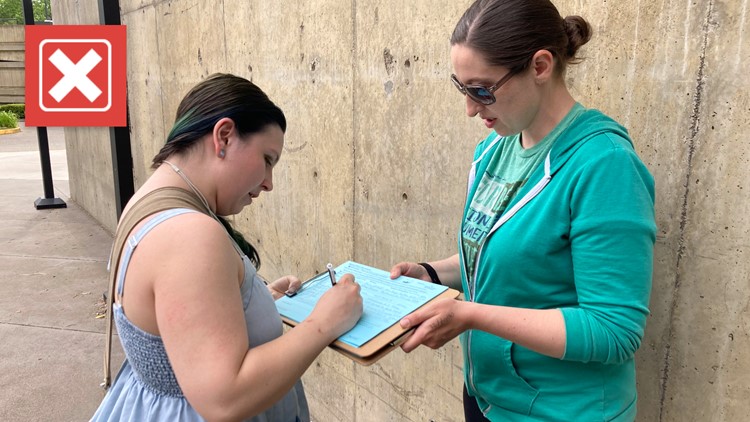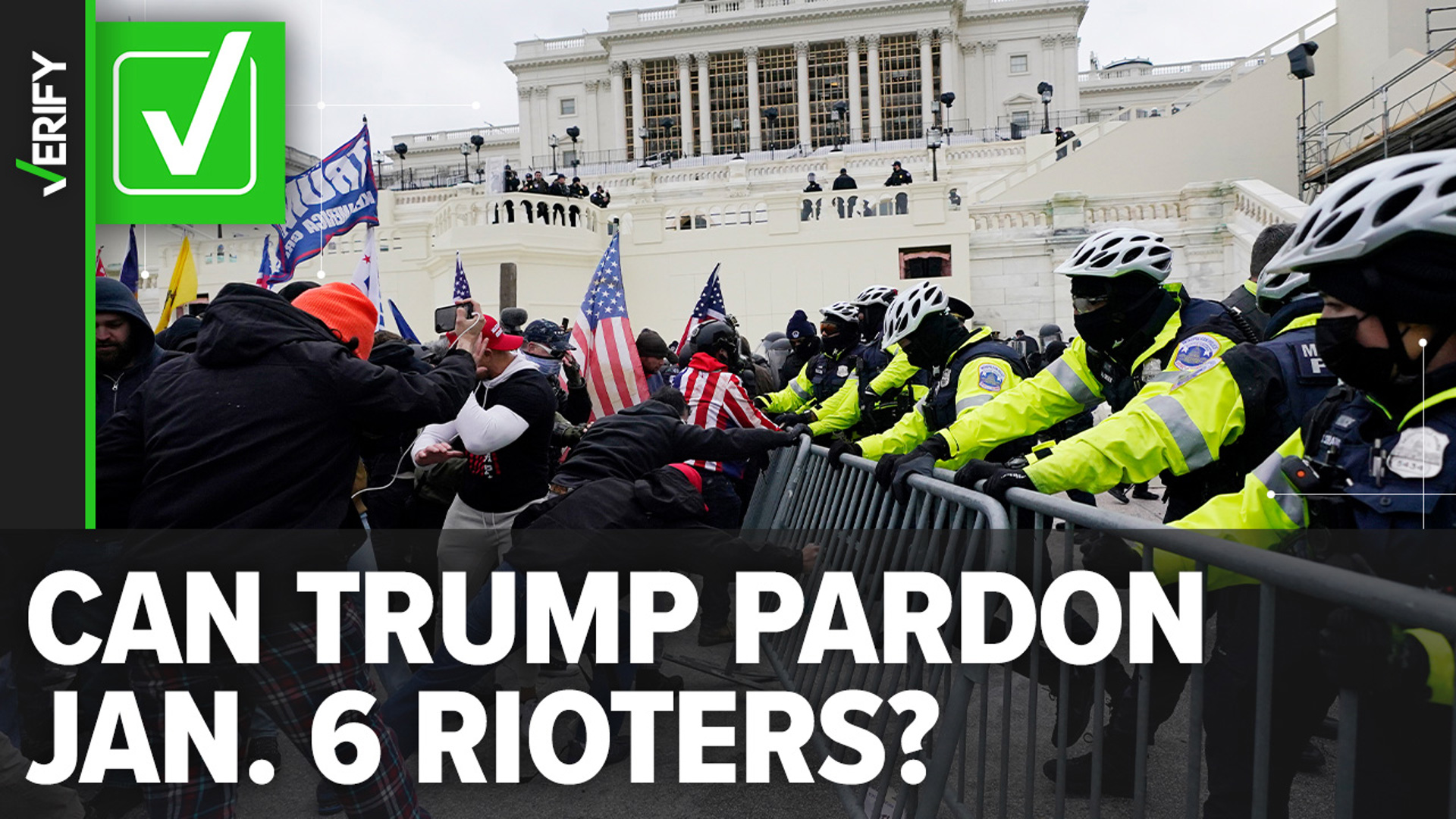SALEM, Ore. — Oregon is one of several states that have an initiative petition system, allowing the state's voters to weigh in directly on proposed laws — or veto recent laws passed by the state legislature — if the proponents can gather enough signatures to put the issue on the ballot.
Getting a proposed initiative onto the ballot requires the sponsors to gather a specific number of signatures from registered Oregon voters, but a VERIFY viewer recently noticed an unusual detail on this year's prospective Initiative Petition 49: one of the two "chief petitioners" originally had a North Carolina address.
It was later updated to a Portland address, but the viewer reached out to ask if it's legal in Oregon for out-of-state sponsors to file initiative petitions, or if the entire process is restricted to Oregon voters.
THE QUESTION
Do you have to be an Oregon voter to submit an initiative petition and start gathering signatures to get it on the ballot?
THE SOURCES
THE ANSWER
No, there is no requirement that a petition be submitted by an Oregon voter — but only Oregon voters can add their signatures to the petition to get it onto the ballot.
WHAT WE FOUND
Oregon petitions have to follow a specific process, laid out in the State Initiative and Referendum Manual. A petition can have anywhere from one to three sponsors, known as the chief petitioners, and they must begin by filing the text of their proposed initiative with the Oregon Secretary of State's Office.
The chief petitioners must then collect and submit an initial round of at least 1,000 "sponsorship signatures." Once those signatures are verified, the prospective petition will be sent to the state Attorney General, who will draft the initiative's official ballot title and summary to make sure it follows the Oregon Constitution's requirements for ballot measure language.
After a public comment period, the Attorney General will issue the certified ballot title and the Elections Division will send signature sheet templates to the chief petitioners so they can start gathering signatures. Once a petition is approved for signature-gathering, the petition language and listed chief petitioners cannot be changed.
If the chief petitioners can gather enough valid signatures by the deadline, the petition will be put on the next November ballot. Constitutional amendment petitions require signatures equal to at least 8% of the number of votes cast for governor in the most recent election. For statutory initiatives, the requirement drops to 6%.
To get to the question: The rules make it clear that all of the sponsorship signatures and regular signatures must come from registered Oregon voters, and they won't be counted unless the Secretary of State's office can verify them. However, the manual states that "any person, acting individually or on behalf of an organization, may be a chief petitioner."
KGW emailed the Oregon Secretary of State's Office to double-check that passage, and received this response:
We believe chief petitioners can be anyone. Section 1 of Article IV of the Oregon Constitution says “…the initiative and referendum powers reserved to the people…” It doesn’t say the “people of Oregon”. Also, we believe there are no constitutional restrictions that would require a chief petitioner to be a registered voter or even a resident of this state/county.
It's also worth noting that the chief petitioners for an initiative or referendum are required to form a Petition Committee before they can begin circulating their petition for signatures, and the committee must have an Oregon address (not a PO Box) and must create a campaign account at a financial institution in Oregon.
Got a question or a story about Portland or Oregon that you'd like us to VERIFY? Drop us a line at verify@kgw.com.



